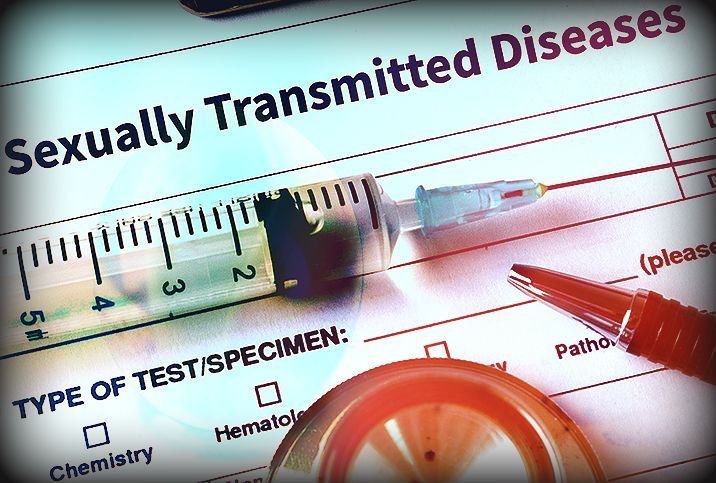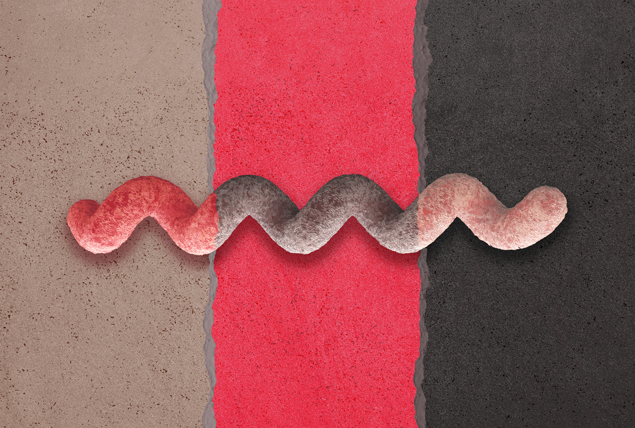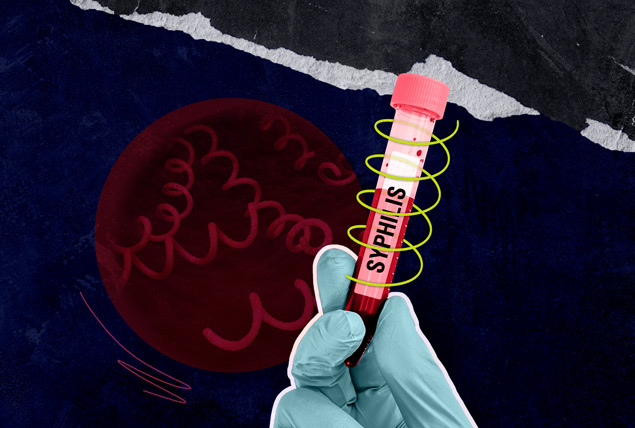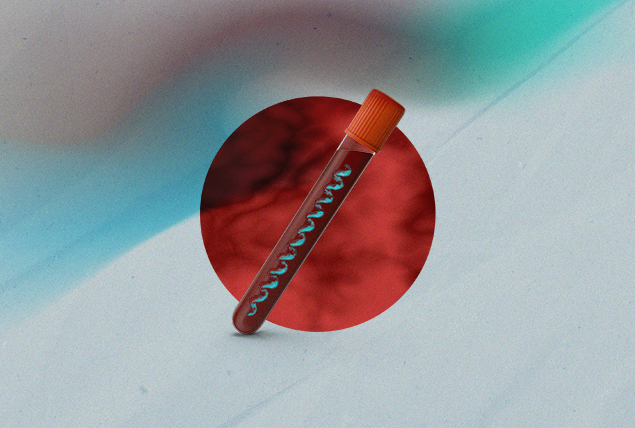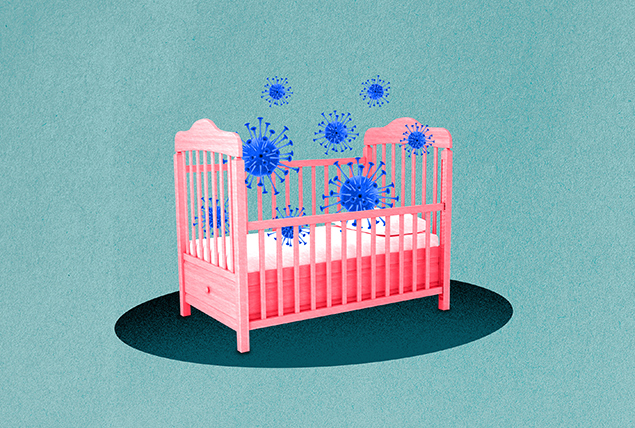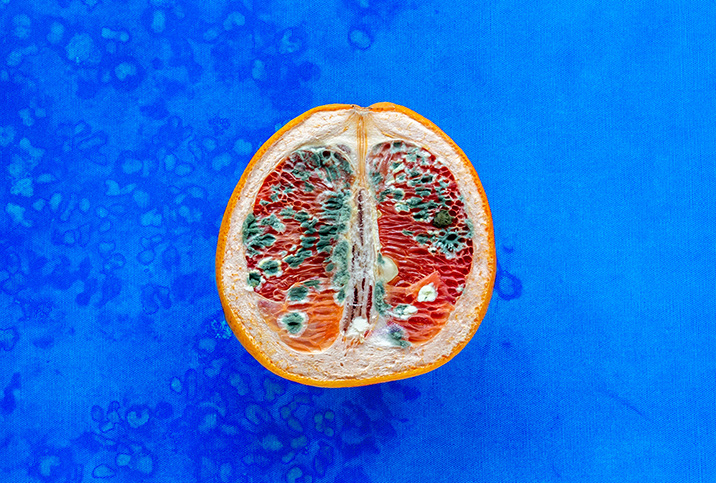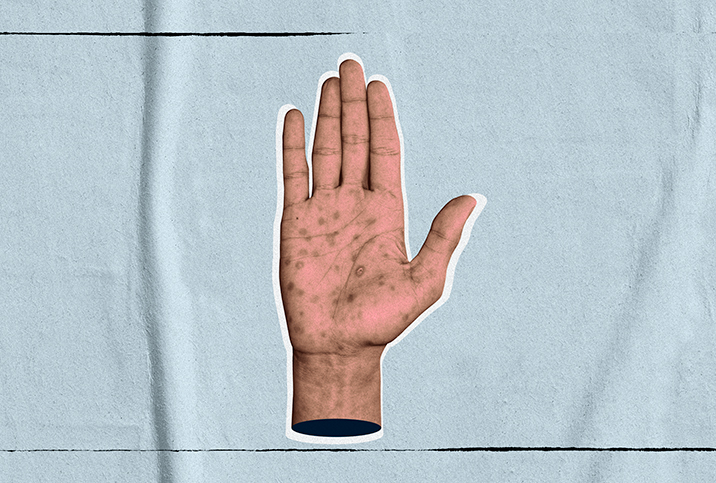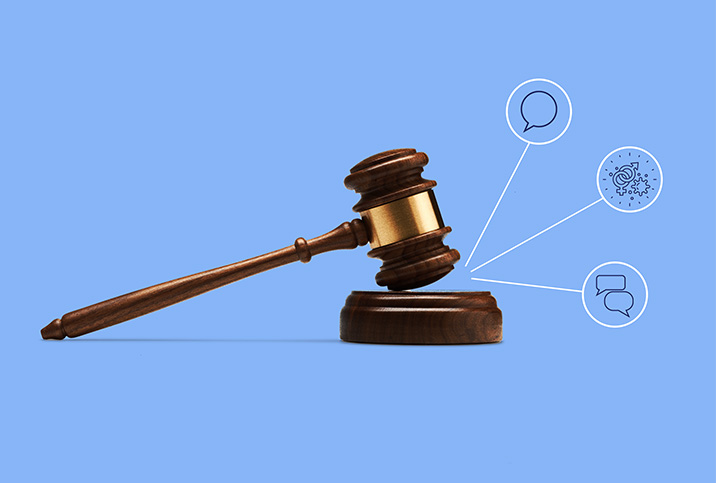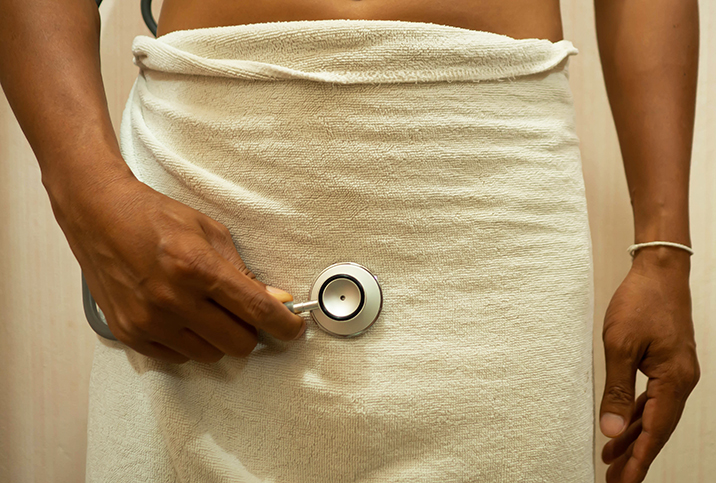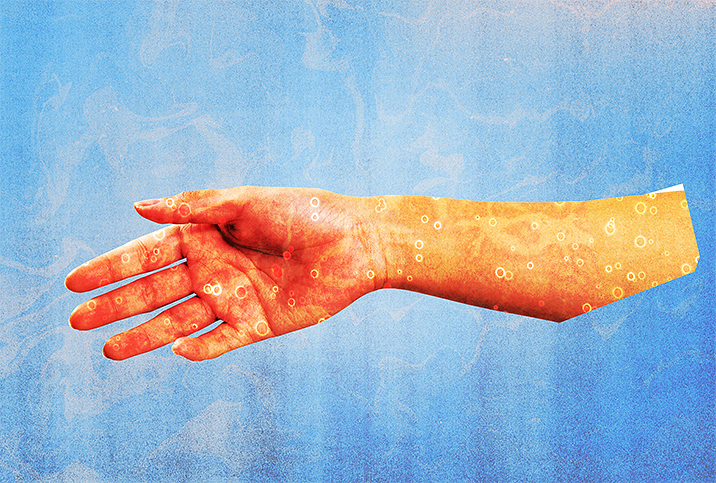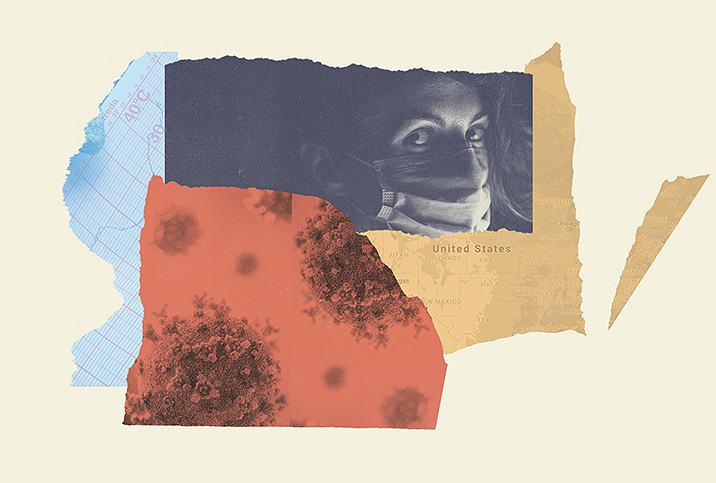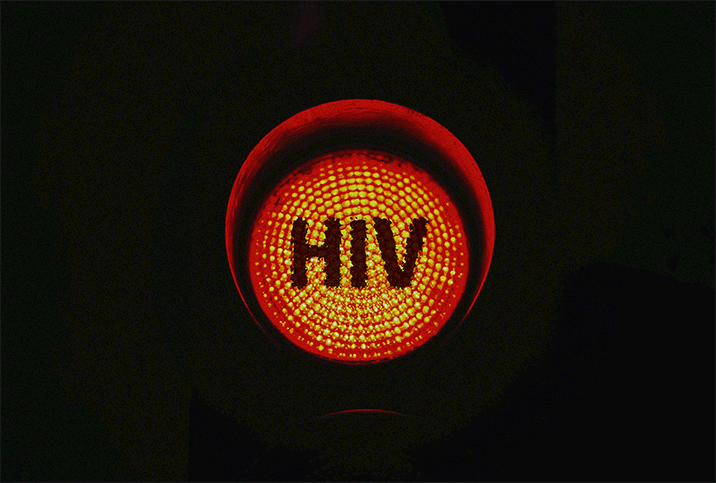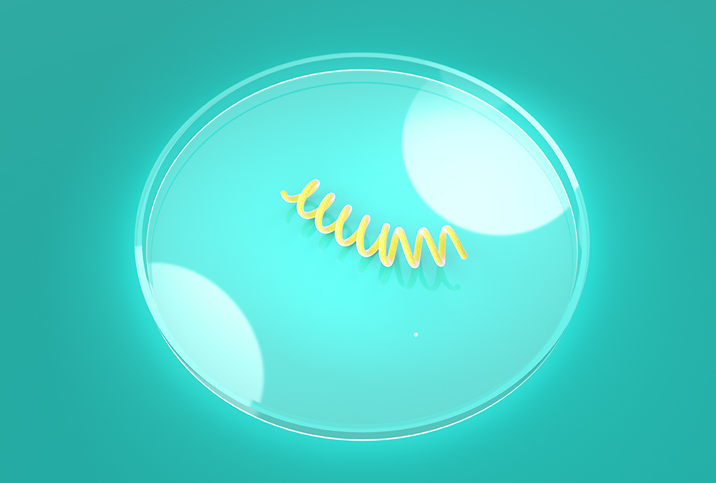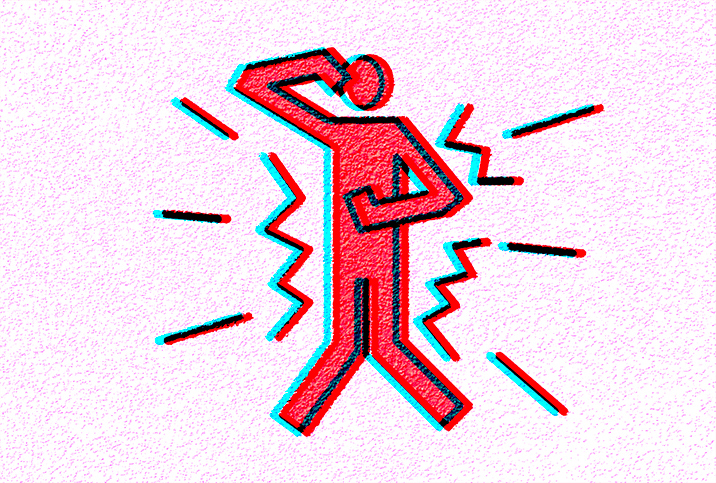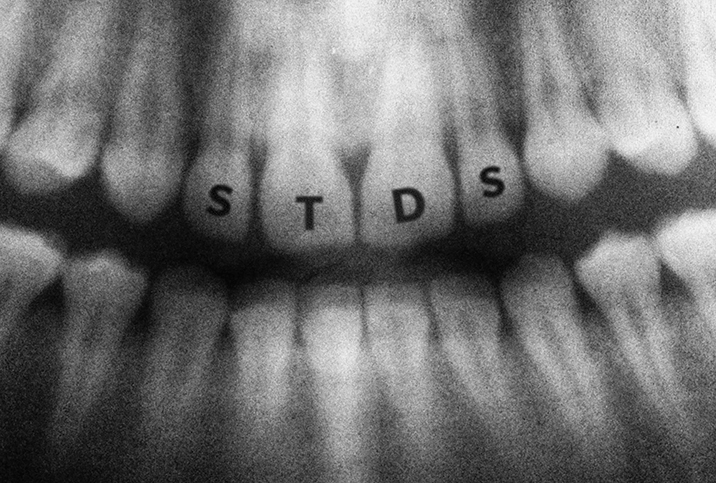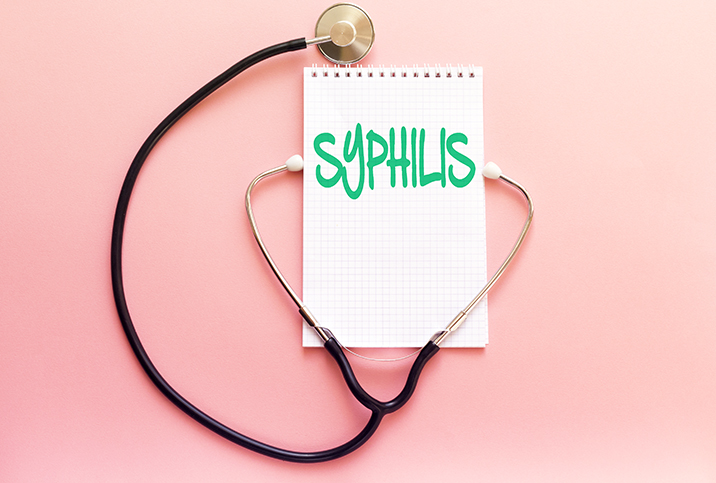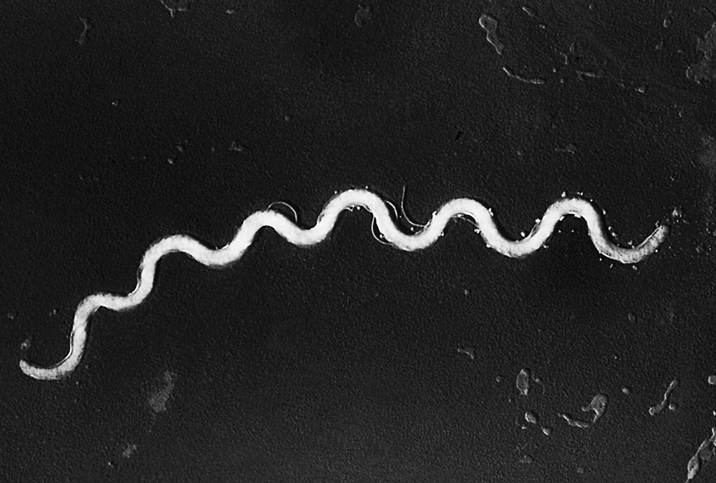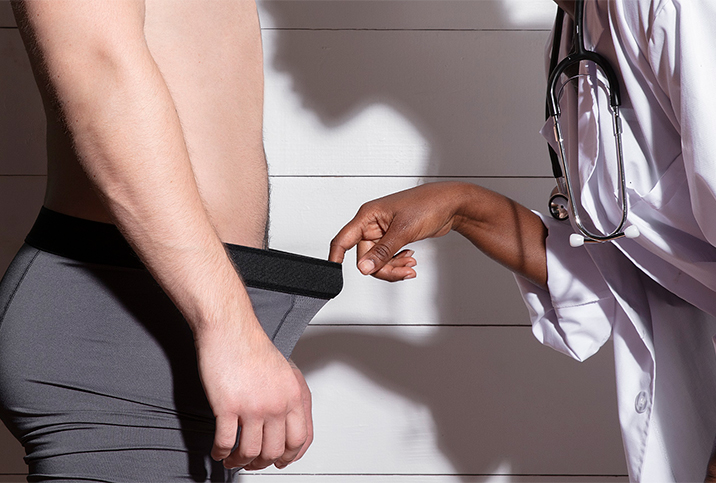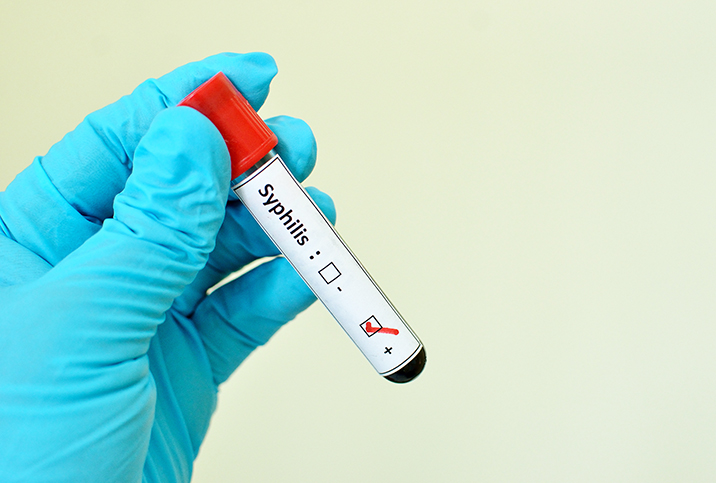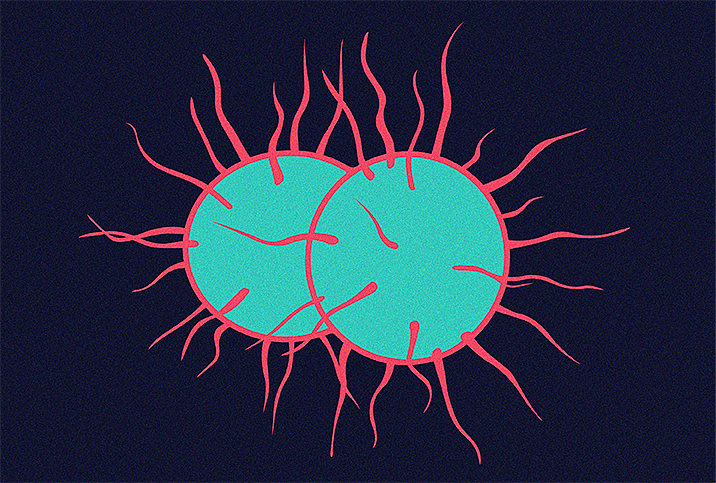The 2024 over-the-counter syphilis test makes screening accessible and could slow STI rates.
By Kate Daniel
Don't let the stigma and misconceptions about syphilis make a diagnosis worse than it is.
By Reniel Anca
The sexually transmitted infection (STI) develops over time with different signs and symptoms.
By Reniel Anca
There may be no symptoms but regular testing is crucial to avoid serious outcomes.
By Reniel Anca
No longer a death sentence, this STD can be treated successfully—but it must be diagnosed early.
By Reniel Anca
The state's number of infants delivered with the STD increased from 8 to 106 in five years.
By Lauren Dodd
To prevent serious problems from this STD, early treatment and frequent testing are essential.
Although the STD can be cured in this phase, the further stages may not be as manageable.
By Fjolla Arifi
Failing public health systems may be responsible for the lack of timely treatment that cures CS.
By Xenia E.
Testing for this STD is most often a two-step process, but those steps may vary.
By Rachel Crowe
When it comes to STI prevention, education beats criminalization.
By Xenia E.
'The Great Pox' was a brutal, deadly disease that wreaked havoc on the world for centuries.
By Tim Lalonde
Most are curable, but when left untreated, secondary complications can be life-threatening.
By Holly Ellis
That skin irritation could be a sign of an STI.
By Holly Ellis
What you should know about the unwelcome comeback of one of the most feared STDs in history.
How much do you actually know about one of the most infamous sexually transmitted diseases?
With infections on the rise, everyone should take precautions and know the risks.
By Heidi Tait
Common sexually transmitted diseases are on the rise in the U.S. What's causing the increase?
By David Hopper
Take a closer look at the impact of sexually transmitted diseases on the immune system.
By Thea Engst
Syphilis is an STD that can lead to serious complications. Know what to look for and get help.
Syphilis is a dangerous infection that can cause fetal deformities or death if left untreated.
By Holly Ellis
Modern syphilis treatments save lives, but what should patients do after they're cured?
Recognizing symptoms and getting treatment early protects vital organs and your nervous system.
Could that peeling skin on your hands be the second stage of an STD?
By Holly Ellis
Penetrative sex isn't the only way STDs are spread. Oral sex requires caution, too.
Stories about syphilis have been around for more than 500 years. What's real and what's myth?
Disadvantages in dark-field microscopy have led to its replacement in syphilis detection.
By David Hopper
Antibiotics and awareness mean syphilis isn't as dangerous as before—unless left untreated.
Syphilis is an extremely dangerous STD, with numerous stages and potentially lethal outcomes.
This scary-sounding STD resists treatment and shines a light on the importance of testing.
Obscure symptoms and public health failures may be causing the recent rise in syphilis.
By Thea Engst
Don’t let anything you’ve heard about syphilis prevent you from staying safe while having sex.
By Erin Coleman
Look out for the warning signs that might indicate an STD, especially if you're at risk.
By Erin Coleman
If a partner tests positive for an STD, use these tips to safely address the situation.
By Tory Lysik
Improve the safety of your sex life.
While treatable, syphilis can cause major long-term health problems if not addressed quickly.
By Erin Coleman
One of the most devastating STDs is making a comeback, so get educated about syphilis’s stages.
A possible STI is not the end of the world. Keep a level head and act quickly for best results.
By Emily Blaire
Find out why you shouldn’t be complacent about contracting ‘less serious’ STDs like gonorrhea.






